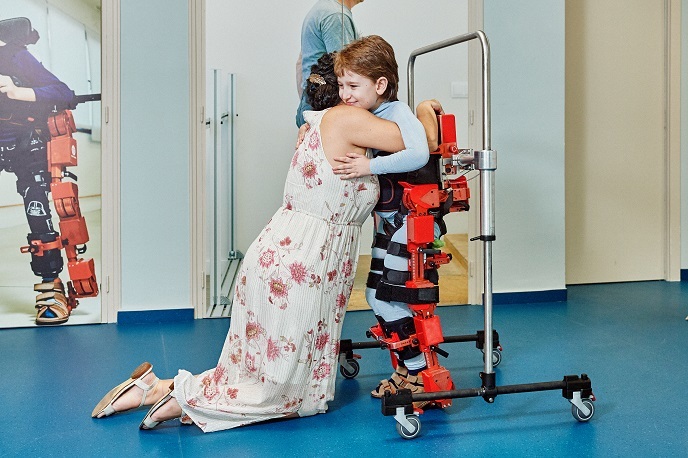An innovative strategy for procuring innovation
Europe’s population is greying. And as the general population grows older, new societal challenges arise. Perhaps nowhere is the challenge greater than in answering the increasing call for healthcare services and the treatment of chronic diseases. Traditionally, Europe’s healthcare system has predominantly focused on a hospital to outpatient care cycle. However, to meet the new demands presented by an ageing population, this focus must shift towards providing preventative and self-care – a shift that can only happen with the use of new technology and ICT-based solutions. But getting these technologies to the market is anything but straightforward, with one of the biggest obstacles being the initial procurement of innovative solutions. This is because, in general, health and procurement authorities have not yet embraced such novel, innovation-centric procurement instruments as Pre-Commercial Procurement (PCP) and Public Procurement of Innovation (PPI). The EU-funded INSPIRE project helped to change this out-dated approach to procurement by encouraging the use of PCP and PPI within the domains of eHealth, active ageing and independent living. The project focused on sharing and disseminating evidence on successful procurement practices from various European projects and providing support to European procurers operating in the health sector and looking to adopt these new collaborative procurement practices. PCP and PPI defined PCP facilitates the co-development of new methods and delivery processes for healthcare by connecting the companies facing a problem with such solution providers as end-users and technology companies. More specifically, it is an approach for procuring R&D and innovative services that let public procurers share the risks and benefits of designing, prototyping and testing new products and services directly with suppliers. By pooling the efforts and resources of several procurers, PCP creates optimum conditions for wide commercialisation and uptake of R&D results via standardisation and/or publication. PPI, on the other hand, refers to a procurement process where contracting authorities act as the launch customer or early adopter. As such, they purchase the innovative goods or services that have just arrived on the market and thus are not yet available on a large-scale commercial basis. Procuring with confidence ‘INSPIRE intended to address the confidence issue in PCP and PPI by creating a stakeholder ecosystem and a communications platform capable of inspiring public procurers from Member States responsible for defining the acquisition strategies for innovative solutions in eHealth, active ageing and independent living’, says project leader Suzan Ikävalko of the Nordic Healthcare Group. The project started by creating a sector-specific network of contracting authorities committed to using innovative procurement practices. This network then served as a hub for collecting and disseminating evidence and best practice scenarios on implementing PCP or PPI as a means for developing new technologies and ICT-based services within the healthcare delivery system. The project also went one step further and linked innovative procurement initiatives with venture capital activities. ‘R&D and innovative activities often face difficulties in attracting sufficient external finance in an adequate timeframe, especially in the prototype and commercialisation phase’, says Ikävalko. ‘Linking PCP with venture capital can provide the missing boost needed to complete the innovation chain in a manner that guarantees the business case’ she argued. Useful tools to face common problems The result of these efforts was the creation of several PCP/PPI-related tools, recommendations and models. For example, the PCP/PPI Toolkit introduces users to the relevant aspects of procuring innovation and to the common problems that a careful procurement design can solve. It uses real-life examples to show how to access the need, communicate with the market, define a business case and design a competitive procedure. INSPIRE’s Business Case Modelling, on the other hand, is a document that indicates the key questions that public procurers and their organisations must be able to answer in order to establish whether or not they should conduct future-focused PCP initiatives.
Keywords
INSPIRE, healthcare, PCP, pre-commercial procurement, PPI, public procurement for innovation, ageing, chronic diseases, ICT, toolkit, ICT







